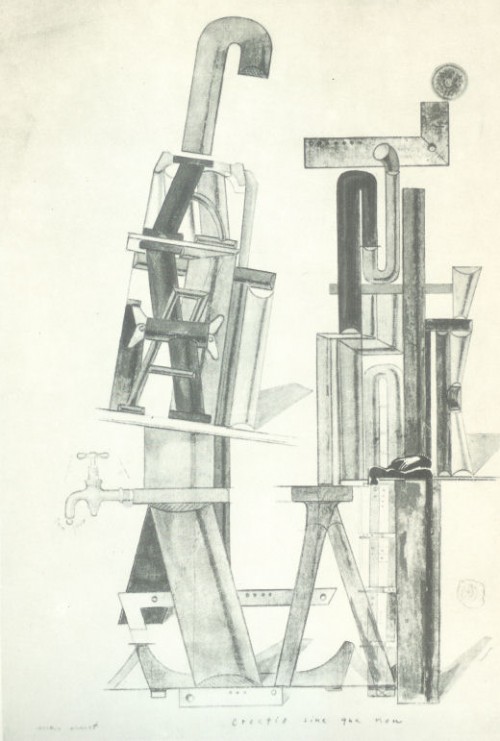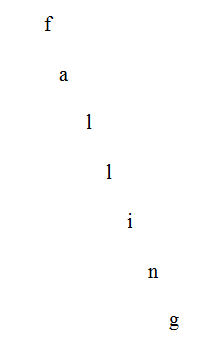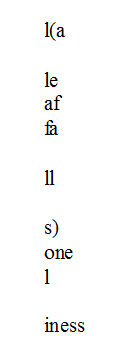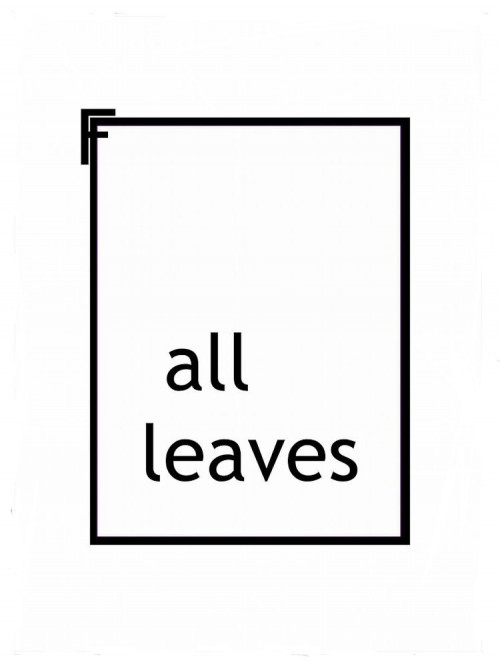It started with David Graham posting the following poem to New-Poetry:
. Mingus at The Showplace
.
. I was miserable, of course, for I was seventeen,
. and so I swung into action and wrote a poem,
. and it was miserable, for that was how I thought
. poetry worked: you digested experience and shat
. literature. It was 1960 at The Showplace, long since
. defunct, on West 4th St., and I sat at the bar,
. casting beer money from a thin reel of ones,
. the kid in the city, big ears like a puppy.
. And I knew Mingus was a genius. I knew two
. other things, but as it happened they were wrong.
. So I made him look at the poem.
. “There’s a lot of that going around,” he said,
. and Sweet Baby Jesus he was right. He glowered
. at me but he didn’t look as if he thought
. bad poems were dangerous, the way some poets do.
. If they were baseball executives they’d plot
. to destroy sandlots everywhere so that the game
. could be saved from children. Of course later
. that night he fired his pianist in mid-number
. and flurried him from the stand.
. “We’ve suffered a diminuendo in personnel,”
. he explained, and the band played on.
.
. William Matthews
. Time & Money
. Houghton Mifflin Company
.
I Liked it for the same reasons I like many of Charles Bukowski’s poems, so I said, “Good poem. Makes me wonder if he was influenced or influenced Bukowski. Seems like something by Bukowski, Wilshberianized.”
Mike Snider responded that “Matthews was a far better poet than Bukowski thought himself to be, and he did indeed know his jazz. At the other end of some cultural curve, I love his translations of Horace and Martial.
“And I love your work, Bob, but ‘Wilshberia’ is getting quite a bit past annoying.”
I may be unique among Internetters in that when I post something and someone (other than a troll) responds to it, I almost always carry on the discussion. I did that here: “I think Bukowski at his rawest best was equal to Matthews, but extremely uneven. One of his poems about a poetry reading has the same charge for me that this one of Matthews’s has. I haven’t read enough Mattews to know, but suspect he wrote more good poems than Bukowski did.
“(As for my use of ‘Wilshberia,” I’m sorry, Mike, but it can’t be more annoying to you than Finnegan’s constant announcements of prizes to those who never work outside Wilshberia are to those of us who do our best work outside of it, prizelessly. Also, I contend that it is a useful, accurate term. And descriptive, not derogatory.”
At this point David Graham took over for Mike with some one of his charateristics attempts at wit: “Sorry, Mike, but I have to agree with Bob here. Just as he says, ‘Wilshberia’ is a useful, accurate term, in that it allows someone to see little important difference between the work of Charles Bukowski and William Matthews.
“Think how handy to have such a term in your critical vocabulary. Consider the time saved. Sandburg and Auden: pretty much the same. Shakespeare and Marlowe: no big diff. Frost and Stevens: who could ever tell them apart?
“It’s like you were an entomologist, and classified all insects into a) Dryococelus australis (The Lord Howe Stick Insect) and b) other bugs.”
Professor Graham is always most wittily condescending when he’s sure he has ninety percent of the audience behind him, which was sure to be the case here.
Needless to say, I fired back: “Seeing a similarity between those two is different from seeing “little important difference between” them, as even an academic should be able to understand.
“Wilshberia, for those who can read, describes a continuum of poetry ranging from very formal poetry to the kind of jump-cut free association of the poetry of Ashbery. The sole thing the poets producing the poetry on it have in common is certification by academics.
“No, David, (it’s not like being an entomologist who “classified all insects into a} Dryococelus australis [The Lord Howe Stick Insect] and b} other bugs). Because visual poetry, sound poetry, performance poetry, cyber poetry, mathematical poetry, cryptographic poetry, infraverbal poetry, light verse, contragenteel poetry, haiku (except when a side-product of a certified poet) and no doubt others I’m not aware of or that have slipped my mind are meaninglessly unimportant to academics as dead to what poems can do that wasn’t widely done fifty or more years ago as you does not mean they are the equivalent on a continuum of possible poetries to a Lord Howe Stick Insect in a continuum of possible insects.” Then I thanked the professor for “another demonstration of the academic position.”
My opponent wasn’t through: “A rather nice nutshell of my oft-expressed reservation about Bob’s critical habits above. Note how in his definition of Wilshberia above, ‘the sole thing’ that characterizes such poetry is ‘certification by academics.’ I think we all know what ‘sole’ means. OK, then, it has nothing whatsoever to do, say, with technical concerns. There is no meaningful aesthetic distinction involved. And thus it is obviously not definable according to whether it is breaking new technical ground, because “the sole thing” that defines it is whether academics ‘certify’ it, whatever that means. And as we well know, academics tend to appreciate a spectrum of verse, from the traditional forms and themes of a Wilbur to the fragmentation and opacity of various poets in the language-centered realm.
“But look at the second paragraph above. What are academics being accused of? Oh, it seems we don’t appreciate poetry that breaks new technical ground or challenges our aesthetics. We don’t like poetry of various aesthetic stripes recognized as important by Bob.
“Whether or not that accusation is even true (another argument), does anyone else see a certain logical problem here?”
I didn’t say much. Only that he was wrong that “There is no meaningful aesthetic distinction involved” involved in my characterization of Wilshberia because aesthetic distinctions are involved to the degree that they affect academic certifiability, which they must–as must whether the poetry of Wilshberia is breaking new technical ground.
I proceeded to say, “The meaning of academic certification should be self-evident. It is anything professors do to indicate to the media and commercial publishers and grants-bestowers that certain poems are of cultural value. Certification is awarded (indirectly) by teaching certain poems and poets–and not others; writing essays and books on certain poems and poets–and not others; paying certain poets and not others to give readings or presentations at their universities; and so forth. What (the great majority of) academics have been certifying in this way for fifty years or more is the poetry of Wilshberia.” “Only,” I would now add.
I also noted that I had I previously defined Wilshberia solely as academically certified poetry. “Implicitly, though,” I claimed, “I also defined it as poetry ranging in technique from Wilbur’s to Ashbery’s. Since that apparently wasn’t clear, let me redefine Wilshberia as “a continuum of that poetry ranging from very formal poetry to the kind of jump-cut free association of the poetry of Ashbery which the academy has certified (in the many ways the academy does that, i.e., by exclusively teaching it, exclusively writing about it, etc.)”
Oh, and I disagreed that ” . . . as we well know, academics tend to appreciate a spectrum of verse, from the traditional forms and themes of a Wilbur to the fragmentation and opacity of various poets in the language-centered realm.”
“My claim,” said I, “remains that the vast majority of them think when they say they like all kinds of poets from Wilbur to Ashbery that they appreciate all significant forms of poetry. I have previously named many of the kinds they are barely aware of, if that.”
That was enough for the professor. He retired to an exchange with New-Poetry’s nullospher, Halvard Johnson, about not having a certificate indicating he was a poet in good standing.




Bob, You should give us a link to your post
Sorry. I didn’t think any of my readers would be interested in anything posted at Poetry Magazine’s blog. aside, possibly, from my reaction to it. But here it is http://www.poetryfoundation.org/poetrymagazine/article/241856.
–Bob